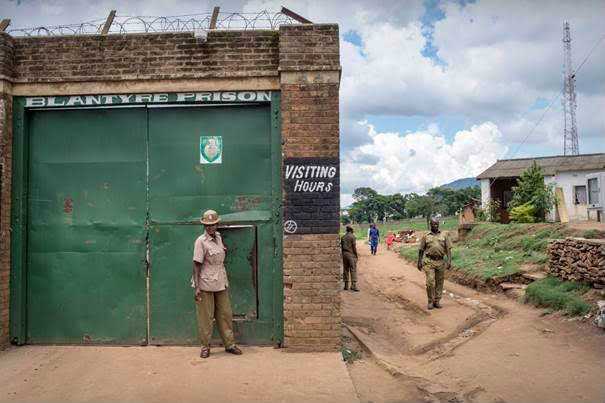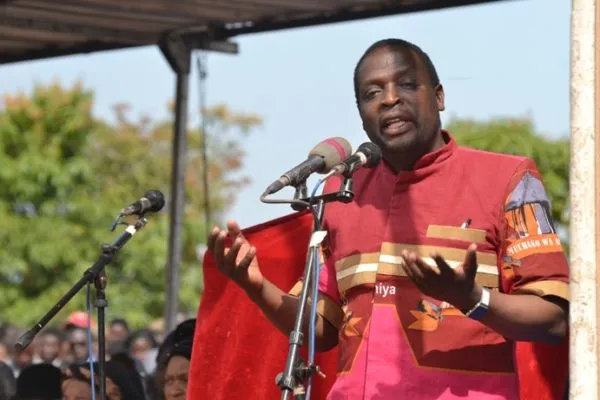The PPDA has rejected several attempts to award the contract to a Chinese firm, Hua Long, citing irregularities, including a K11 billion mathematical error in its initially successful K68 billion bid. Then the Ministry of Homeland tried to grant the contract to Paramount Holdings Limited who submitted a K79 billion bid. PPDA said no and wants a fresh new tender for the 4,000-capacity facility — for the third time. By Jack McBrams Malawi’s plan for a state-of-the-art maximum-security prison in Chitedze, Lilongwe, has become the epicenter of a high-stakes battle fraught with allegations of corruption, political interference, and procurement irregularities. The prison, envisioned to relieve the country's overcrowded penitentiaries, has turned into a tug-of-war between two major bidders, raising questions about transparency and the integrity of the process. At the heart of the controversy is a stark K10 billion discrepancy between the two top bidders: Paramount Holdings Limited, whose bid stands at K79 billion, and Chinese firm Hua Long Construction, with a bid of K68 billion. The project, which would house 4,000 inmates and include a primary school and hospital, has become a lightning rod for competing political and business interests. The Ministry has come under scrutiny for failing to conclude the bidding process, a decade after the government committed to building the prison. The Anti-Corruption Bureau (ACB) has since stepped into the contracting debacle and ordered the bidding process to be frozen to pave way for an investigation. “We received a request to vet the procurement of Chitedze Maximum Security Prison in accordance with Section 37 (11) of the Public Procurement and Disposal of Public Assets Act. The Bureau noted an anomaly in the pricing of this tender and communicated the same to the PPDA,” the grafting-busting body’s spokeswoman Egrita Mdala told PIJ. She explained that the ACB has since recommended to PPDA to withhold clearance on the procurement pending clarifications on some of the issues observed and noted in this procurement process. “We may, therefore, not be able to discuss further details at this point,” said Ndala. A Tainted Process The Ministry’s request to the PPDA to allow for them to award the contract to HuaLong Construction, despite noting that the Chinese company made a ‘mathematical error’ in their bid only deepened the confusion. Gao Yang, trading as Hualong Construction (Pty) Limited, initially submitted a bid of K56,796,109,988.68 for the construction of the prison, before making an upward adjustment due to an arithmetic error, altering the contract sum to MK67,794,614,878.30. However, the PPDA withheld the No Objection request, on the basis that the magnitude of the error was too large to overlook. This is despite the Ministry maintaining that the Procurement Act and its regulations are silent on the acceptable margin for such errors. The Ministry's internal evaluation team had, after all, recommended Hua Long for the contract. However, the PPDA stood firm in its decision This debacle has dragged the project into a mire of back-and-forth communications between the Ministry and the PPDA, with each side accusing the other of mismanagement. The Ministry’s evaluation team insisted that it had followed proper procedures, while the PPDA criticised the Ministry for using outdated and incorrect bidding documents. The authority also took issue with the disqualification of several joint ventures that had initially passed technical evaluations, further casting doubt on the integrity of the process. In a letter dated March 7, 2024, the Ministry recommended awarding the contract to Hua Long for K67.8 billion. However, the Public Procurement and Disposal of Assets Authority (PPDA) rejected the request just one day later. The PPDA flagged a K11 billion arithmetic error in Hua Long’s original bid, which had inflated the final price. The authority noted that such a significant error cast doubt on the accuracy and precision of Hua Long’s overall billing. “The substantial increase was not in accordance with the spirit of allowing corrections for minor arithmetical errors,” stated Jonathan Kantayeni of the PPDA in his rejection letter. “In view of the provision of section 6(1)(l) of the Public Procurement and Disposal of Assets Act of 2017, the Authority wishes to guide that it is not correct that the only reason stipulated under the public procurement legal framework for disqualification of a bidder with respect to arithmetic error is when the concerned bidder rejects the correction as indicated on Regulation 134 (2) of the Public Procurement Regulations 2020. The provision in regulation 134(1) of PPR 2020 provides for correction of only errors made "on the face of the bid,” PPDA wrote the ministry in explaining their decision for rejecting the No Objection. In a follow-up letter to the Ministry, the PPDA justifies its stance, arguing that the errors to be corrected are not of such substantial increase. “That is, the inclusion of the phrase “obvious gross mathematical error” supports the connotation of accepting only errors made “on the face of the bid” not of such substantial increase i.e. 19% of the initial bid price representing K11 billion in this case under review. “Therefore, the withholding of the No Objection by the Authority made and communicated to you on 9th April 2024 was within its powers as provided under s.6(1)(l) of the PPDA Act 2017. That is the Authority has power to determine on all matters connected and ancillary with any public procurement. Hence, the Authority in withholding the request based on such an error of huge magnitude which was not made "on the face of the bid", was within the legal framework,” the PPDA director general wrote. The Ministry then decided to award the contract to Paramount, writing to the PPDA on 20 June 2024, requesting a ‘No Objection’ to award the contract for a sum of MK 79,821,492,752.78. But the PPDA would have done none of it, writing back to the Ministry on 7 July and rejecting the request for No Objection. In a letter to the Ministry, PPDA Director General Edington Chilapondwa noted that “the Authority withheld its No Objection to award a contract for construction of Chitedze Multi-Complex Maximum-Security Prison to Paramount Holdings Limited.” To ensure the integrity of the procurement process, PPDA advised the Ministry to cancel and restart the procurement on the basis of the fact that the observed anomalies in this procurement cannot be cured to maintain the procurement integrity. PPDA also advised the Ministry to engage a consultant to review the bidding document that was prepared prior to re-starting the bidding process and come up with a new bidding document. Among other guidelines, the PPDA has further told the Ministry to revise the bidding document to clearly state that arithmetical error shall only be accepted as per the spirit of regulation 134 of the PPR 2020 as guided by the Authority. Alternatively, the bidding document should provide that a bid with any arithmetical error shall be rejected. The PPDA further demanded that the Ministry’s Internal Procurement and Disposal of Assets Committee (IPDC) appoint an external evaluation team or consultants to undertake the evaluation of the bids that shall be submitted other than using the same members who did the evaluation of the cancelled previous submissions. When contacted, Principal Secretary of the Ministry of Homeland Security, Steven Kayuni, claimed he had not seen the letter sent to his office by the PPDA two months ago. “We don’t have that letter. There is no update from PPDA,” he told PIJ. Paramount Holdings Limited chairman Prakash Ghedia told PIJ that he is not aware of any latest developments regarding the tender. “I am not aware of anything. It is a secret process so we have not been untold anything,” he said. Messages and calls to HuaLong official Xinlong Wang went unanswered. When asked for a statement, PPDA spokesperson Kate Kujaliwa said, “The information is not held by the authority,” refusing to comment further on the ongoing controversy. A History of Controversy Plans for Chitedze Prison date back to 2015, with the project envisioned as a solution to the chronic overcrowding in Malawi’s prisons. Despite several rounds of bidding and re-bidding, construction has yet to begin. In 2022, nine contractors were shortlisted after passing the technical evaluation stage, with bids ranging from K29.9 billion to K49.9 billion. Paramount Holdings’ bid of K35 billion was among the more expensive, yet it has emerged as the favourite amid growing allegations of political manoeuvring. According to insiders, the Ministry originally wanted to award the contract to South African firm Stefanutti Stocks (PTY) Ltd for K55.8 billion. However, the PPDA rejected this decision as well, citing procedural errors and the Ministry's failure to follow proper evaluation methodologies. Specifically, the PPDA noted that the wrong bidding documents had been used, rendering the entire process invalid. “The use of incorrect documents automatically cancels the entire procurement process,” said one procurement specialist familiar with the matter. Prisoners’ rights activist Victor Mhango of the Centre for Human Rights Advice Education and Assistance (CHREAA) believes that the problem stems from the fact that the Malawi Prison Service has not been involved in the process. Mhango, who is also a member of the Prison Inspectorate, told PIJ that the significant delay could be attributed to a lack of coordination. “If the prison department was not involved in the planning stages, it could lead to misunderstandings regarding the needs and requirements of the facility. This lack of collaboration might contribute to further delays and complications in the project,” he said. He added that it would be beneficial for the government to ensure that all relevant stakeholders, including the prison department and local communities, are involved in the planning and execution phases of such projects to avoid future issues and ensure that the facility can effectively serve its intended purpose. This article was produced by the Platform for Investigative Journalism (PIJ), an independent centre for investigative journalism. PIJ is committed to professional and ethical journalism.



.jpeg)




